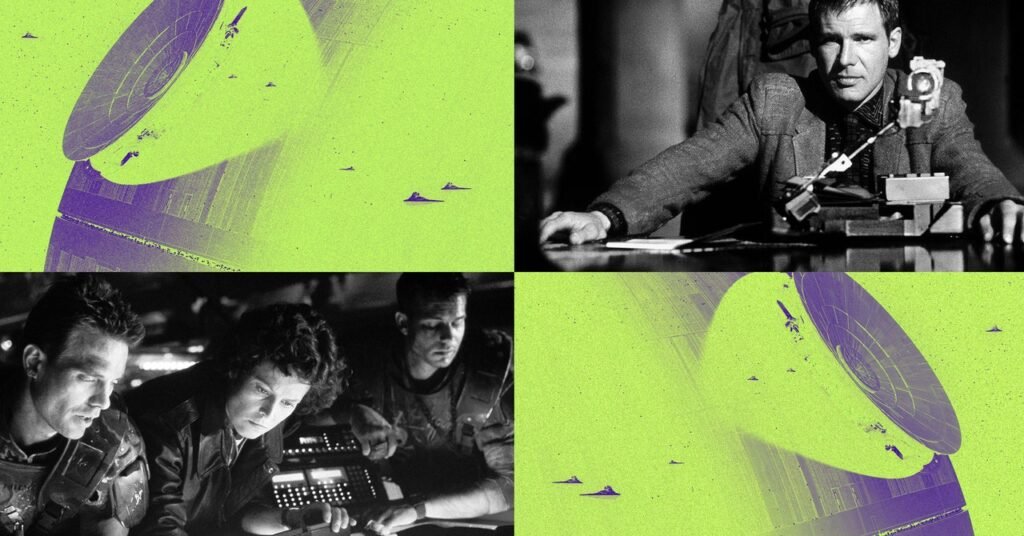Finally, a release date was chosen: May 25, 1979—exactly two years to the day following the release of Star Wars. Ladd had come to believe that the date was a lucky one for the studio.
“I remember I was in a horrible office in Times Square, and I was staring down at this billboard that said, ‘Alien … In Space No One Can Hear You Scream,’” says Scott. “I could also see a queue going all the way around the block. I hadn’t seen that since Star Wars. So at that point, I kind of figured that we would be in good shape.”
In fact, Alien would end up becoming one of the top-grossing movies of 1979, setting house records on its opening weekend on its way to scaring up $106 million at the worldwide box office. However, the critical reaction was mixed at best.
By the tail end of the ’70s, science fiction as a genre rarely got a fair shake from middle-aged reviewers. But in this case, they seemed unable to look beyond Scott’s lush Madison Avenue style and see the substance underneath. While some hailed Scott as a new kind of horror-film visionary, and both Gene Siskel and Roger Ebert would tilt their thumbs upward, others regarded it as little more than an “empty bag of tricks.”
Despite the skeptics, as 1979 drew to a close, Alien would be nominated for a pair of Oscars, for Best Art Direction and Best Visual Effects. It would win a statuette for the latter, thanks to the mad Swiss, H. R. Giger. Meanwhile, due to the film’s runaway financial success—the only metric that truly matters in Hollywood, critics be damned—Scott was now a filmmaker in demand.
Just a couple of years earlier, he’d been wary of becoming pigeonholed as a director of lyrical historical art films. Now, after Alien, he was being inundated with offers to helm big-budget science fiction pictures. However, this time around, he wasn’t concerned about being typecast. Not yet, at least. Which is how Scott found himself sitting in the opulent office of Italian movie mogul Dino De Laurentiis to discuss the producer’s massive adaptation of author Frank Herbert’s 1965 novel Dune.
Scott would, in fact, labor on Dune for more than seven months with screenwriter Rudolph Wurlitzer (Pat Garrett & Billy the Kid) in London, trying to shoehorn its vast, unwieldy story into a manageable two-hour script. But every step forward seemed to be followed by several steps backward.
“I worked on Dune for what seemed like ages,” says Scott. “But every corner we turned on the thing, it became clearer and clearer that this was going to take another year and a half or two years of intense work until we finally got going.”
In retrospect, Dune had seemed like a cursed property since day one. First optioned by Planet of the Apes producer Arthur P. Jacobs in 1972, his big-screen adaptation loitered in development purgatory until his death in 1973 and remained there for the next two years while the producer’s estate ironed out the intricacies of his contractual holdings. Then, in 1975, a French consortium led by a wealthy Parisian with Tinseltown dreams named Michel Seydoux purchased the rights from Jacobs’s estate. He subsequently lured Alejandro Jodorowsky to spin a film from Herbert’s source material.
Source link
